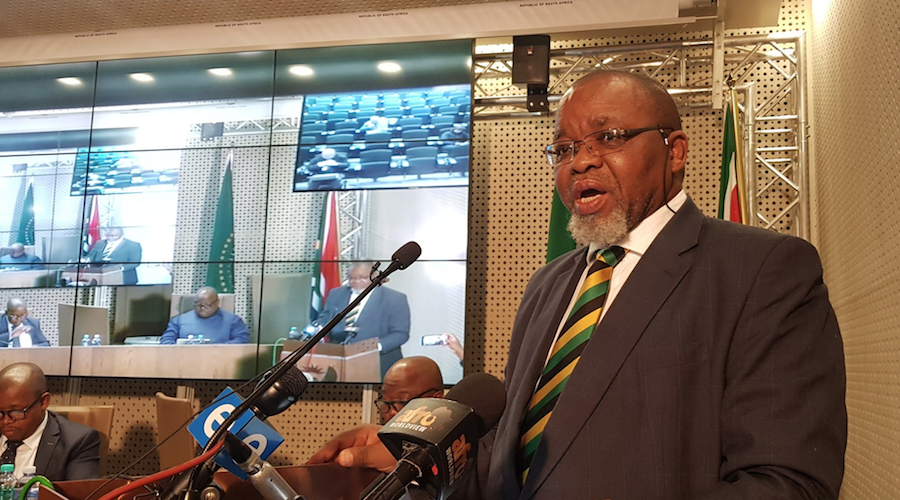Almost half of deadly mine accidents in South Africa happened at Sibanye-Stillwater sites: Minister

South Africa’s Mineral Resources Minister Gwede Mantashe said on Sunday that 20 out of 45 mining deaths reported since the start of 2018 have taken place at Sibanye-Stillwater’s (JSE:SGL) (NYSE:SBGL) mining sites.
To date, #SibanyeStillwater operations are responsible for 20 of the 45 fatalities reported since the beginning of the year. It, therefore, cannot be business as usual in how the Regulator attends to this situation. There will be an update once the report is completed. pic.twitter.com/pE3KXA1tZg
— Gwede Mantashe (@GwedeMantashe1) June 17, 2018
At a press conference in Pretoria, Mantashe announced that the Mine Health and Safety Inspectorate is investigating and compiling a report on the precious metals producer with the idea of taking appropriate action.
“Mining is not about rocks‚ it is about people. Once you lose that‚ you think that mining is about rocks‚ it’s about minerals‚ it’s about prices‚ then you have lost the plot … If you ignore human beings‚ you’ll have no mining,” he said.
Earlier this week, five people died at Sibanye’s Kloof Ikamva gold project after they entered an abandoned section of the mine. This was just the latest in a series of fatal incidents at the companies’ South African operations, which have generated concern in the government and an uproar from the Association of Mineworkers and Construction Union, known as AMCU. Although it has acknowledged the accidents, the company says that AMCU only wants to hurt its reputation.
Nevertheless, according to Minister Mantashe, fatalities in the gold mining industry seem to be on the rise in South Africa and there are growing worries about the proportion that take place at Sibanye’s operations.
Mantashe’s pronouncement was made at a meeting aimed at discussing the country’s new Mining Charter. The government official said a 30-day period for public comments has just started and that once it ends, the law will be sent to cabinet for publication.
Among other things, the Charter stipulates that mining companies have five years to increase black economic empowerment ownership to 30 per cent‚ while black South Africans must constitute 50 per cent of board members‚ 20 per cent of whom must be black women.
Government will give credit for past black-empowerment deals even when the investors later sold their shares to whites or foreigners.
“Some people said that 30 per cent [ownership] is not substantial,” Mantashe said at the media briefing. “But if you convene to zero, where we were at the beginning, it is very substantial,” he added.
{{ commodity.name }}
{{ post.title }}
{{ post.date }}




Comments
allritejack
Can’t expect Mantashe the politician to understand the issues. Sibanye took over the deepest, most problematic mines of AAC. As such, they are the most prone to seismic activity. It is trite to conclude that Sibanye or anyone else in the industry is not deeply concerned about accidents, far less fatalities, in these mines. Nonetheless there will be accidents & fatalities. If the government want to make a racial issue of it let them apply some democratic principles for once in their protected lives. Call for a vote from the workers on whether to close all the mines or to continue operations with a certain risk of limited fatalities. As with Formula 1 racing, they will vote to continue working. After that, let the naive, feckless officials stay out of it and let the mines carry on with applying their best endeavours to protect their highly valued employees.